Amsterdam is one of the world’s most vibrant destinations, offering a mix of culture, history, cuisine, and modern charm. From its iconic landmarks to hidden gems, this travel guide covers everything you need to plan an unforgettable visit.
Planning your Amsterdam itinerary? Whether you’re searching for the best things to do in Amsterdam, a 3-day travel guide, or where to stay in Amsterdam near the top attractions, this post has you covered. Discover must-see sights, local dining spots, and the best neighborhoods to explore in Amsterdam. Perfect for solo travelers, couples, or families planning a city break or international adventure.
Looking for the best Amsterdam travel tips? This complete Amsterdam city guide highlights must-visit places, nearby excursions, top-rated hotels for tourists, and local food favorites. Don’t miss the nightlife, festivals, cultural landmarks, and parks. This guide is your go-to source for an unforgettable travel experience in Amsterdam.
Tourists often search for ‘how to plan a trip to Amsterdam’ or ‘top attractions in Amsterdam for first-timers’ — and this guide delivers it all. Discover which neighborhoods to stay in, what local dishes to try, and the best time of year to visit. Whether you’re visiting Amsterdam in summer or winter, this travel blog will help you plan the perfect trip.
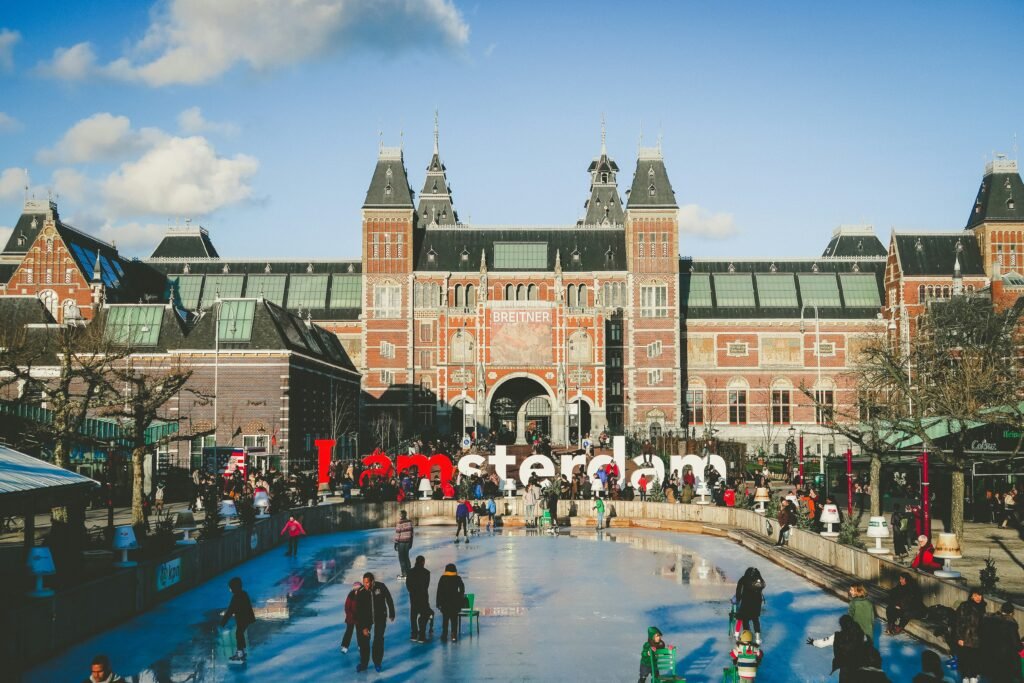
Top 10 Must-See Attractions
- Rijksmuseum: National museum with Dutch masterpieces. Official site
- Van Gogh Museum: Museum dedicated to the life and works of Van Gogh. Official site
- Anne Frank House: Historic house where Anne Frank hid during WWII. Official site
- Vondelpark: Largest city park ideal for walking and cycling. Official site
- Canal Cruise: Boat tour through Amsterdam’s scenic canals. Official site
- Royal Palace: 17th-century royal residence in Dam Square. Official site
- Jordaan District: Trendy area with art galleries and boutique shops. Official site
- A’DAM Lookout: Observation deck with panoramic city views. Official site
- Rembrandt House Museum: Home of painter Rembrandt, now a museum. Official site
- NEMO Science Museum: Interactive science museum for all ages. Official site
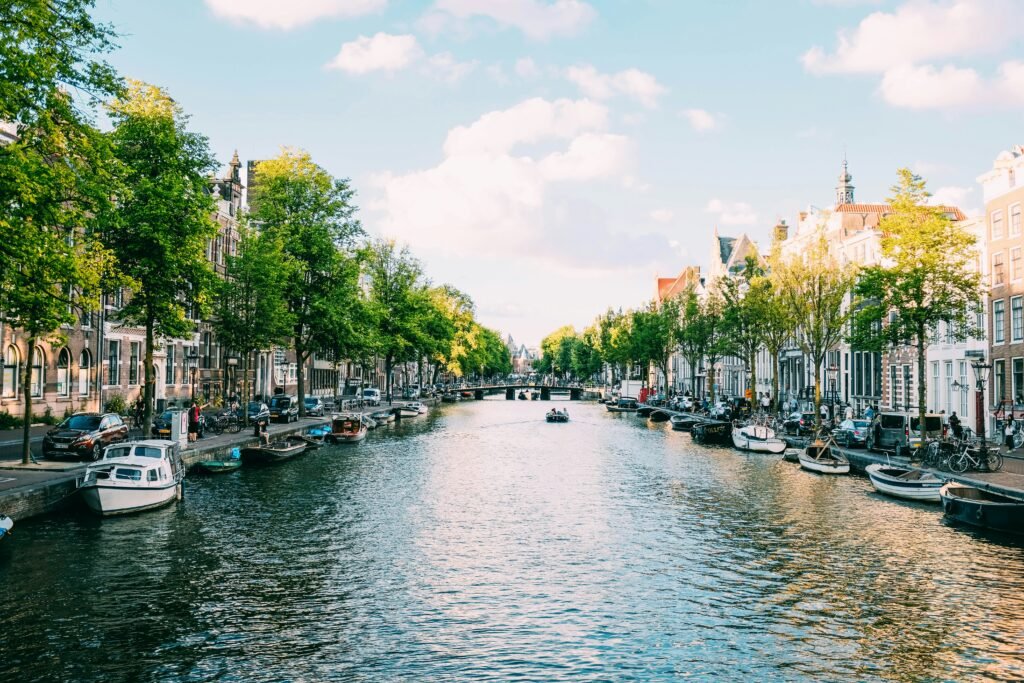
Top 10 Restaurants, Bars & Cafés
- De Kas: Greenhouse dining with seasonal ingredients. Official site
- Restaurant Vinkeles: Michelin-starred restaurant in a former bakery. Official site
- Foodhallen: Trendy indoor food market with various cuisines. Official site
- The Pancake Bakery: Iconic spot for traditional Dutch pancakes. Official site
- Ciel Bleu: Two Michelin stars and skyline views. Official site
- Cannibale Royale: Rustic restaurant known for steaks and burgers. Official site
- Breda: Modern European dining with flair. Official site
- Moeders: Dutch comfort food in a homestyle setting. Official site
- Restaurant Greetje: Traditional Dutch cuisine with a twist. Official site
- Stach: Popular café chain with quality quick meals. Official site
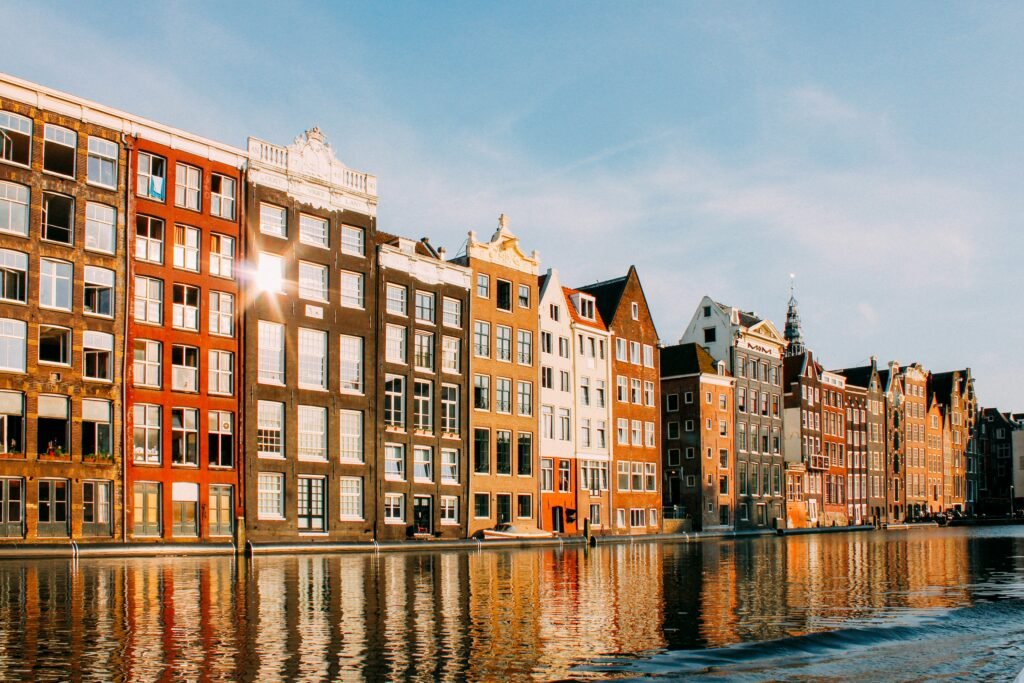
Top 10 Places to Stay
- Waldorf Astoria Amsterdam: Luxury hotel along the Herengracht canal. Official site
- Hotel Pulitzer: Boutique hotel composed of canal houses. Official site
- Conservatorium Hotel: Five-star hotel near museums and parks. [suspicious link removed]
- The Dylan Amsterdam: Stylish boutique hotel in central Amsterdam. Official site
- Kimpton De Witt Amsterdam: Contemporary hotel with Dutch charm. Official site
- Hotel Okura Amsterdam: Elegant hotel with Japanese-inspired amenities. Official site
- Hotel Estherea: Family-run hotel with canal views. Official site
- Sir Adam Hotel: Trendy hotel in A’DAM Tower with views. Official site
- The Hoxton, Amsterdam: Chic hotel with a buzzing social vibe. Official site
- citizenM Amsterdam: Modern, tech-savvy hotel in Zuid district. Official site
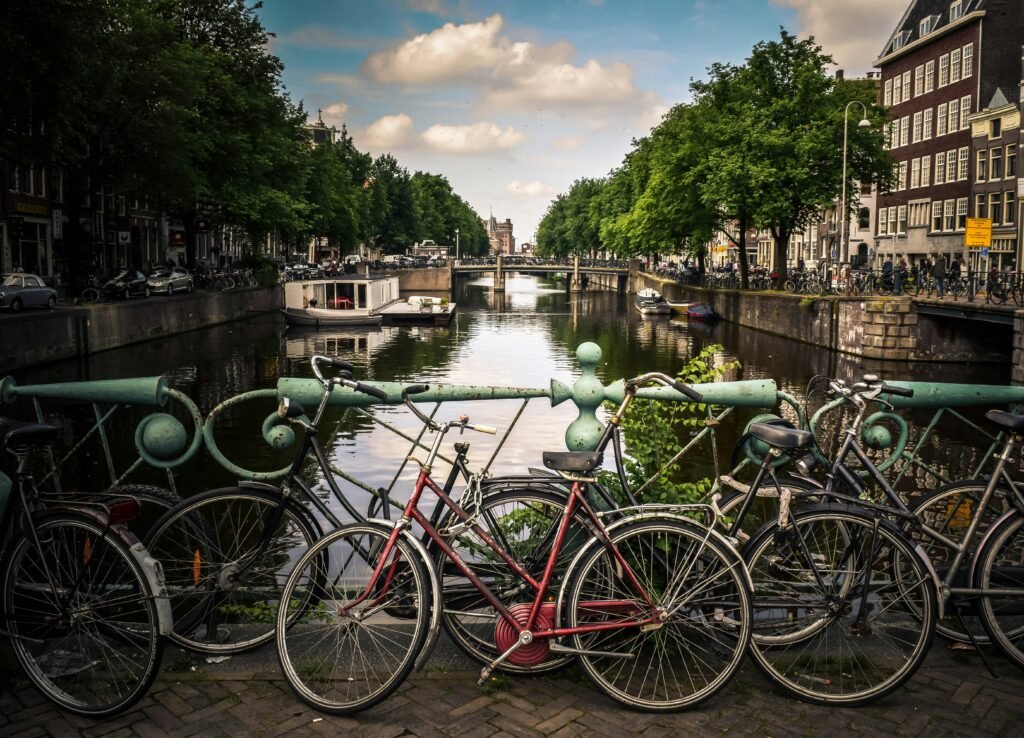
5 Local Festivals and Events
- King’s Day: National holiday with city-wide celebrations in April. Official site
- Amsterdam Light Festival: Winter light installations along canals. Official site
- Amsterdam Dance Event: Electronic music festival drawing global DJs. Official site
- Tulip Festival: Celebration of tulip season in April. Official site
- Holland Festival: Performing arts festival held every June. Official site
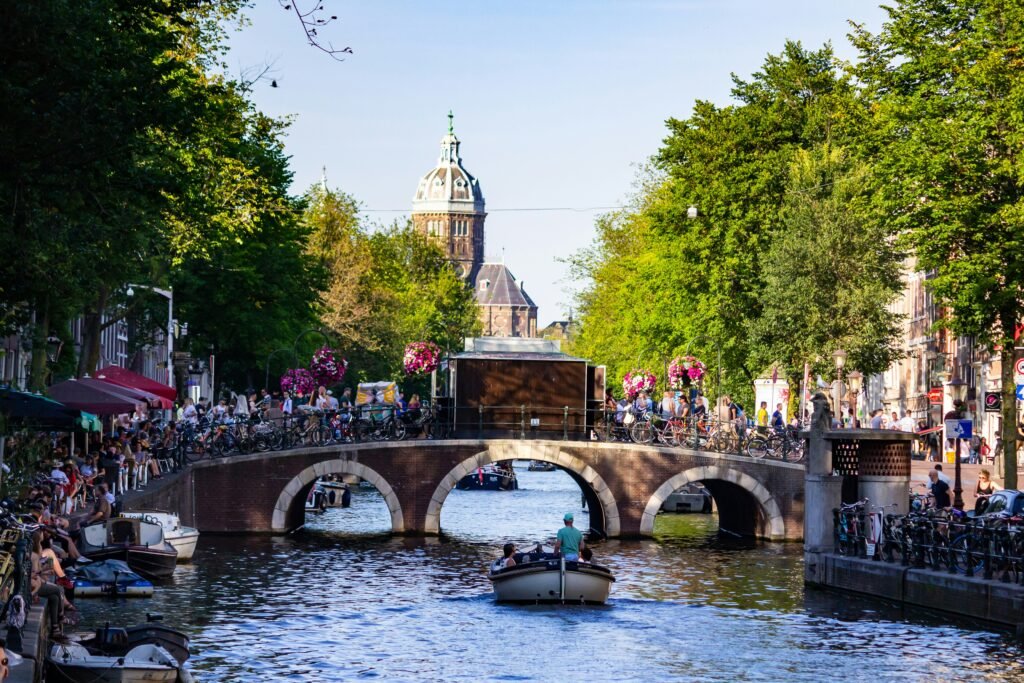
7 Best Neighborhoods to Explore
- Jordaan: Charming area with narrow streets and canals. Official site
- De Pijp: Lively district with bars, cafes, and markets. Official site
- Oud-West: Hip neighborhood with boutique shopping. Official site
- Amsterdam-Centrum: Historic center with main attractions. Official site
- Plantage: Leafy district with museums and the zoo. Official site
- Nieuwmarkt: Cultural area with historic buildings. Official site
- Eastern Docklands: Modern waterfront area with creative spaces. Official site
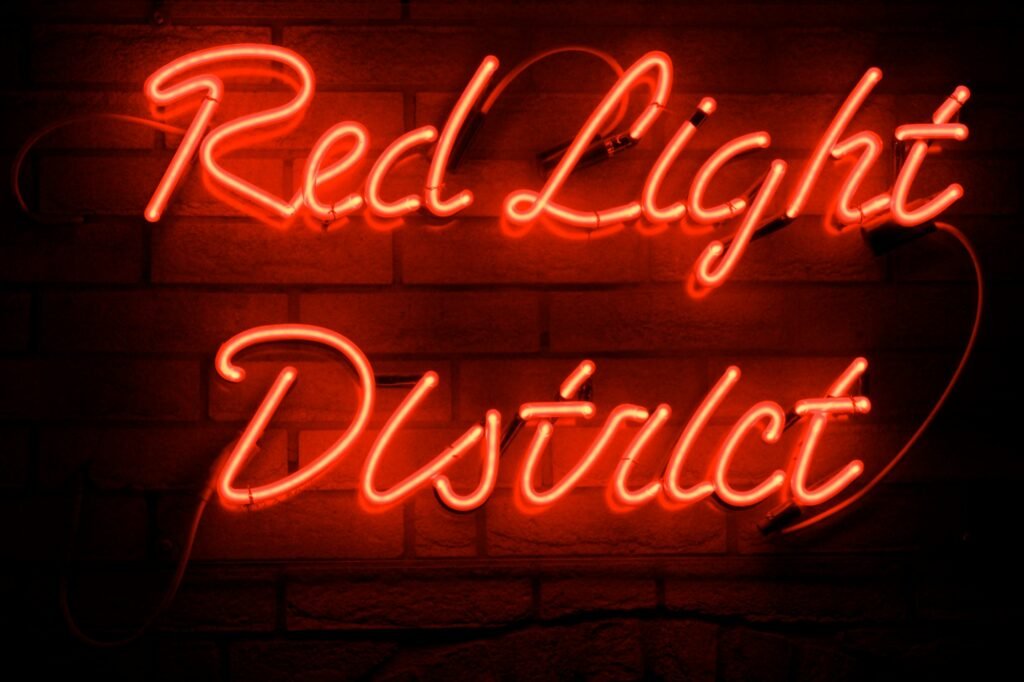
Top 10 Most Googled Questions About Amsterdam
Here are quick answers to some of the most common questions tourists ask about visiting Amsterdam:
What is the best time to visit Amsterdam?
Answer: The ideal times to visit Amsterdam are spring (April-May) for tulips and pleasant weather, or early autumn (September-October) for mild temperatures and fewer crowds. Summer (June-August) is popular but can be very crowded and hot. Winter (November-March) is cold but offers festive Christmas markets and the Amsterdam Light Festival.
How many days do you need in Amsterdam?
Answer: A good minimum for first-time visitors to see the main sights and soak in the atmosphere is 3 to 4 full days. This allows time for museums, canal cruises, exploring different neighborhoods, and enjoying the local culture. You could extend it to 5-7 days if you plan day trips outside the city.
Is Amsterdam expensive for tourists?
Answer: Amsterdam is generally considered moderately expensive, especially compared to some Eastern European cities, but often on par or slightly less expensive than major Western European capitals like London or Paris. Accommodation and attractions can be pricey, but public transport and food from local markets or casual eateries can be affordable.
What language is spoken in Amsterdam?
Answer: The official language is Dutch, but almost everyone in Amsterdam, especially those working in tourism, speaks excellent English. You’ll have no trouble getting around or communicating if you only speak English. Many locals also speak German and French.
How to get around in Amsterdam?
Answer: Amsterdam is a very walkable city, especially the central areas. The best ways to get around are by walking, cycling (it’s the city of bikes!), or using the excellent public transport system (trams, buses, and metro). Taxis and ride-sharing are available but can be expensive.
What is Amsterdam famous for?
Answer: Amsterdam is famous for its beautiful canals, historic canal houses, world-class museums (Rijksmuseum, Van Gogh Museum, Anne Frank House), its bicycle culture, coffee shops (which sell cannabis, distinct from cafés), and its tolerant and liberal atmosphere.
Can you drink tap water in Amsterdam?
Answer: Yes, tap water in Amsterdam is perfectly safe and excellent quality to drink. It’s among the cleanest in Europe, so bring a reusable bottle and refill it often to save money and reduce plastic waste.
What currency is used in Amsterdam?
Answer: Like most of the European Union, the currency used in Amsterdam (and the Netherlands) is the Euro (€). Credit and debit cards are widely accepted, but it’s always good to carry some small Euro notes for smaller purchases or markets.
Where is the “I Amsterdam” sign?
Answer: The iconic “I Amsterdam” sign that was once a major photo spot at Museumplein has been removed from that location. It now rotates to various events and locations throughout the city and surrounding areas. For its current location, check the official I Amsterdam website or local tourism information upon arrival. However, there is a permanent “I amsterdam” sign at Amsterdam Airport Schiphol (AMS) and another one in the Sloten district.
What’s the difference between a “coffee shop” and a “café” in Amsterdam?
Answer: This is a crucial distinction! In Amsterdam, a “coffee shop” is a licensed establishment where you can legally purchase and consume cannabis products. A “café” (or “koffiehuis”) is a regular establishment where you go to buy coffee, tea, pastries, and other non-alcoholic beverages and food, just like a coffee shop anywhere else in the world.
0 Comments